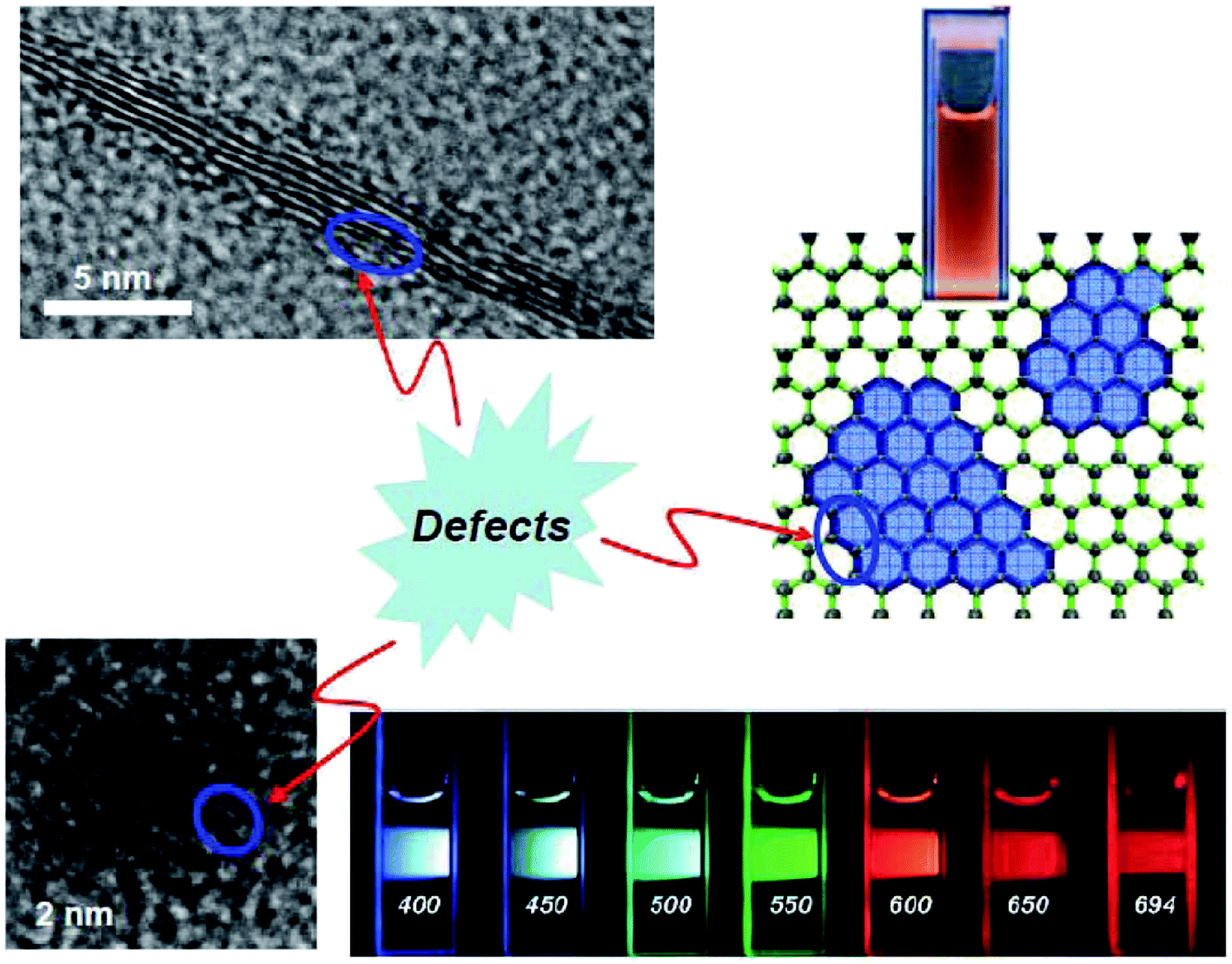Posted on behalf of Sarah Brown, web writer for RSC Advances
I love dots. The dot is one of the protagonists in the Morse code. Dot Branning in Eastenders is one resilient lady. The addition of a dot changes the length of a musical note and turns cougars into leopards. But some of the best dots have to be quantum dots, and more specifically carbon quantum dots.
In a review recently published in RSC Advances, Pengju Luo and co-authors give an insight into the rise of carbon-based quantum dots and the growing competition they represent to semiconductor quantum dots.
Synthesised from ingredients you could get down at the local supermarket (eg, fruit juice, caramel and BBQ’d meat), carbon-based quantum dots are a non-toxic alternative to cadmium-based quantum dots – important for application in biomedical imaging and therapies.

It’s the defects of the carbon nanostructures that give rise to emissions that can be detected in the near infrared and red fluorescence regions, reducing interference from background signals which is promising for tissue analysis applications. The aqueous solubility, photochemical stability and non-blinking performance further underline the advantages of this class of quantum dot. The authors illustrate this with examples of their usage in vitro, ex vivo and in vivo studies.
Although there is still work to be done, after reading this review, you can no longer claim to be naive, or should I say naïve, about the importance of carbon-based quantum dots.
Find out more by reading the full review:
Carbon-based quantum dots for fluorescence imaging of cells and tissues
P. G. Luo, F. Yang, S. -T. Yang, S. K. Sonkar, L. Yang, J. J. Broglie, Y. Liu and Y. – P. Sun
RSC Adv., 2014, 4, 10791-10807 DOI: 10.1039/C3RA47683A











